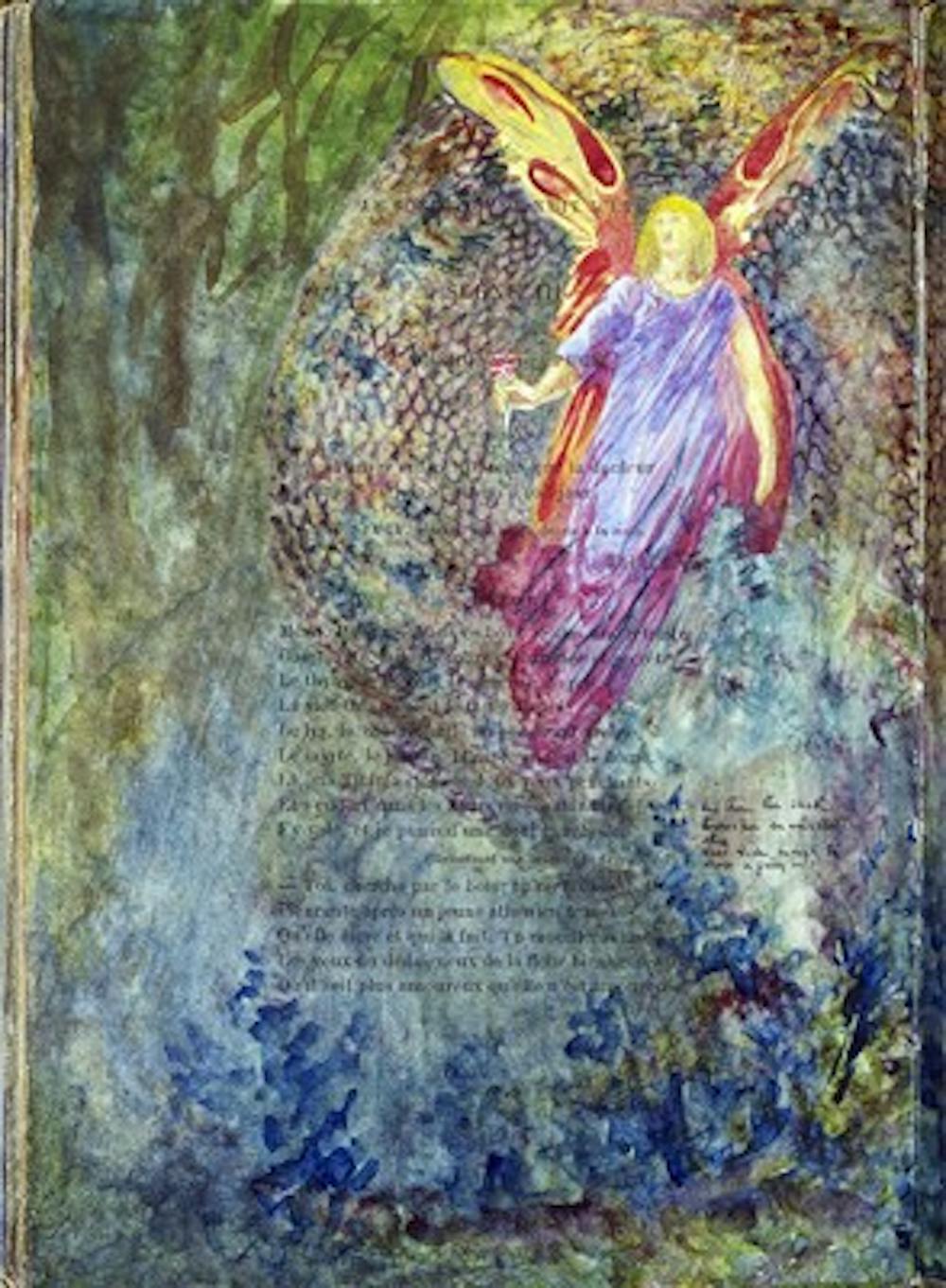There has always been a close relationship between artists and audiences. Art reflects the audience’s emotions and reactions. The Folger Shakespeare Library analyzes this relationship further in its new exhibit, “Extending the Book: The Art of Extra-Illustration.”
This exhibit displays readers’ interactions with various books by inserting their own illustrations, thereby creating their own art by extra-illustrating or grangerizing.
Grangerizing started in the 1700s. The practice got its name from the popularity of adding pertinent pictures to James Granger’s “Biographical History of England” by unbinding the book and adding pages that have been inlaid with portraits or letters. The art of extra-illustrating is such a tedious task that many people would question its appeal. To the readers, on the other hand, grangerizing was not only a great pastime in an era before television or Internet, it was also a way to become connected to a book.
Readers found Shakespeare particularly inviting to grangerize because of the historical references and cultural aspects in his works. It is only fitting that this exhibit is displayed in a library that pays homage to such a renowned playwright. What is unique about this exhibit is the setting in which it is displayed. The exhibition room is not filled with large glass displays, lining the walls or filling the space on the ground, but instead has built-in glass boxes that make it hard for the pieces themselves to stand out in the beauty of the room itself.
The cases posed a problem for curators Stuart Sillars and Erin C. Blake. With so many examples of extra-illustration, choosing the books to display was contingent on the space and how well they portrayed the artistic and social importance of grangerized books.
One display case has a unique setup in which one of the enormous books is placed perpendicular to the others in order to fit. Extra-illustration adds several pages to the books, making what would be an eight-volume collection of Shakespeare’s “Works” span over 42.
The exhibit is viewed counter-clockwise and highlights the popular pastime of the 1700s. The exhibit is even equipped with an optional audio tour in which experts and curators explain some of the pieces via cell phone. The experts and curators analyze the art of extra-illustrating, giving viewers an even more in-depth look. While most of the people who participated in the art of Grangerizing analyzed and admired the books they added illustrations to, grangerizing also added a social aspect of reading. The sheer sizes of the extra-illustrated books make it so people gathered around them in order to read. However, in order to obtain the most unique and interesting illustrations to add, they needed money and connections. Viewing these pieces of grangerized books not only allows the viewer to appreciate a tedious and popular craft, but also provides insight into the social and political world of the time.
Extra-illustration progressed over time to the point where publishing houses provided their own illustration packages that people could purchase to add to books, even labeling the scene and line they refer to. Over the centuries, grangerizing evolved into something similar to scrapbooks. People would insert playbills, ticket stubs or personal letters. Extra-illustration shows how an audience can get so inspired by a piece of art that they produce their own art on the pages.
While the Folger Shakespeare Library’s exhibit “Extending the Book: The Art of Extra-Illustration” is not the most interactive or exciting exhibit in D.C., it is a beautiful collection that would be a great activity to partake in before waiting to see one of the gallery’s many productions of Shakespeare.
You can reach this writer at thescene@theeagleonline.com.





